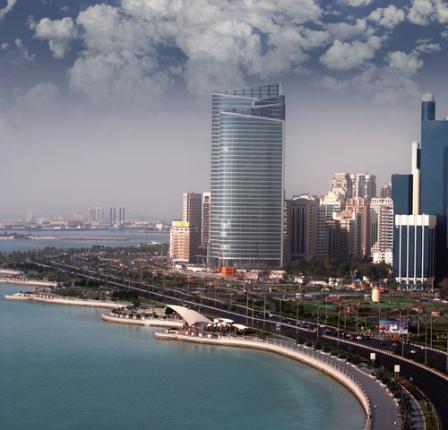Fifteen years ago, Muslims wishing to take out a home finance, use a credit card or deposit money into a current account would have been hard pushed to do so and stay compliant with Sharia law. With few
Islamic banks around - and a limited range of Sharia products - banking as a Muslim invariably involved compromising either your faith or your financial needs.
Today, in many markets, such compromise is no longer necessary. Islamic banking is becoming a part of the mainstream, widely available across financial products and geographies. In 2012, Islamic banking assets are expected to reach US$1.1tn globally, up 33 percent on 2010, according to Ernst & Young. Within just a few years, Islamic banking has transformed into a global industry.
There are three major drivers behind this extraordinary journey - three reasons why I believe Islamic banking will keep on growing far into the next decade.
First, increased competition has resulted in a widening of the Islamic product offering, bringing it within scope for larger numbers of Muslims. In the early 2000s, a move by Islamic banks to make Sharia-compliant products more commercially compelling was a real game changer in the industry.
For the first time, Islamic banks were reaching customers for whom the commercial aspects of banking were just as important Islamic opportunity, have subsequently joined the fray, helping to grow the total market around the world.
Second, as the
Islamic banking proposition has become more attractive, Muslims have converted from conventional banking at a rapid pace, spurring the industry to make the product offering even more sophisticated. Muslims who have been accustomed to using credit cards, for example, will not want to lose this benefit when switching to Islamic banking.
Whether in terms of access, technology, products or services, they expect nothing less than they have been getting from conventional banks, and Islamic banks are responding. Muslims now have a choice: to bank in a Sharia-compliant way, they no longer need to sacrifice the convenience, products and services they have been used to in the past.
Third, the industry is receiving increasing regulatory support with governments in many markets actively encouraging the development of a healthy Islamic banking ecosystem. In the UAE, all new local banking licences granted in the last 15 years have been for Islamic banks. Countries such as Oman, Uganda and Nigeria are opening up their markets. Issuance of sukuk, or Islamic bonds, has become widespread, and
Islamic finance is used increasingly for government support programmes.
In Bahrain for example, Standard Chartered Saadiq now works with independent employment authority Tamkeen to provide Sharia-compliant financing for small- and medium-sized enterprises (SMEs). Malaysia - probably the world’s most successful Islamic banking market - shows what can be achieved. Here, concerted government action has pushed Islamic banking past the tipping point to represent around a quarter of total banking assets.
The next big step for the global Islamic banking industry will be to close the remaining gap with conventional banking when it comes to the range of products and services on offer. Islamic wealth management, for example, is clearly lagging behind, with Sharia-compliant funds comprising less than 0.25 percent of total assets under management.
It is a classic chicken and egg story. To attract wealthy Muslim clients, you need a competitive range of products and services, but to get this, you need scale. However, with the strong growth in Islamic assets and Islamic banking providers putting increased pressure on fund managers to respond, there is a good chance Islamic wealth management will catch within the next few years.
For all the industry’s recent growth, Islamic banking still represents a fraction of total banking assets globally, and the far majority (it is estimated that roughly only one in every eight Muslim with a bank account, banks Islamic) of Muslims still bank conventionally. Penetration remains low in some of the world’s largest Muslim countries, such as Pakistan and Indonesia at nine and four percent, respectively. There are several reasons for this, the most obvious being a simple lack of awareness of what Sharia banking has to offer.
Regulatory barriers also persist in some countries. While different markets will develop at different speeds, support from governments and regulators will help keep up the pace of change.
Opening markets to international Islamic banks will help, too. International providers tend to accelerate development in individual markets with their ability to migrate best practice, product sophistication and banking expertise between geographies. At Standard Chartered, for example, we work with regulators in a number of countries to help develop their framework for Islamic banking, using our experience from other markets.
Clearly, by tapping into their global networks,
international Islamic banks also play a role in facilitating cross-border banking for Islamic customers.
This is essential if the industry is to attract more fast-growing SME customers as well as high net-worth individuals who wish to stay Sharia-compliant without missing out on growth opportunities in foreign markets.
The purpose of all banking, Islamic or conventional, is to help people to reach their aspirations. It is about connecting with customers and meeting their financial needs in a way that fits with how they live their lives. In the last few years, Islamic banking has caught up fast to meet this core requirement.
It is still very early days for Sharia banking, but one thing is clear: with around 1.6bn Muslims in the world, the upside for Islamic banking is huge, and the best is yet to come.


